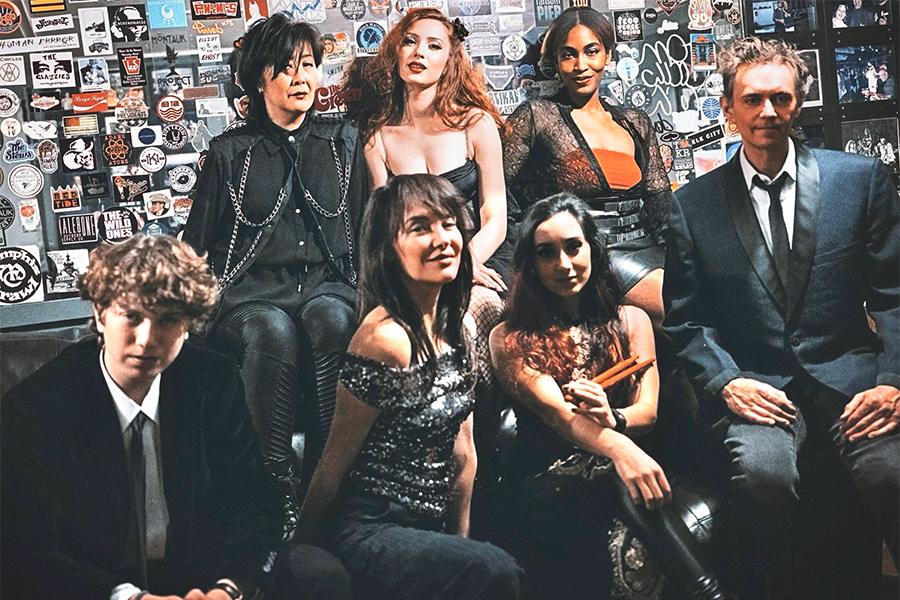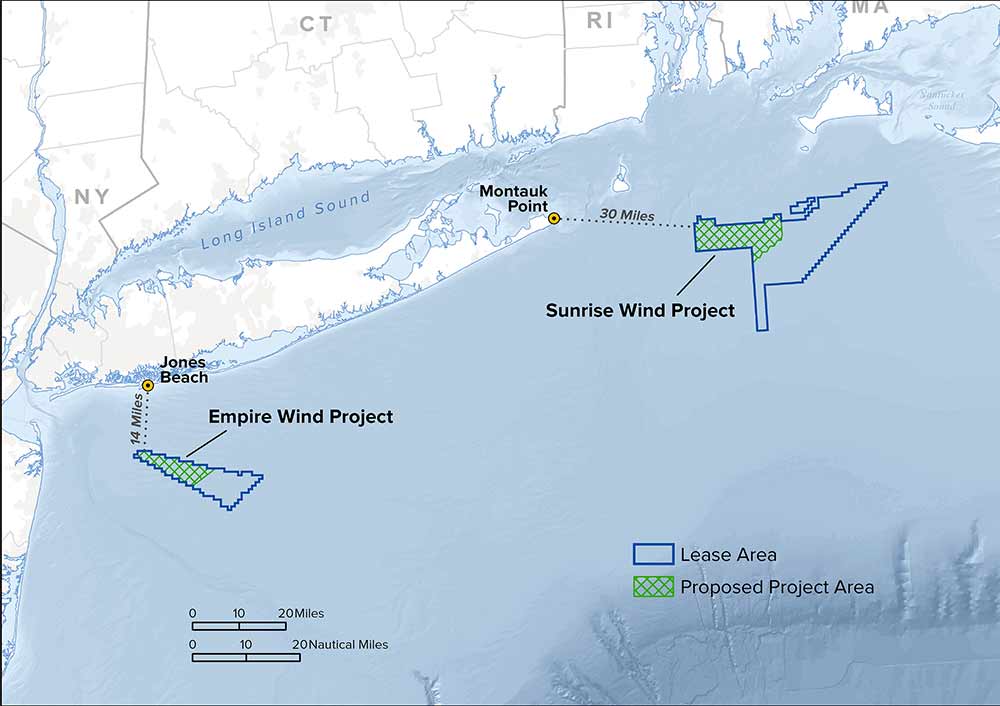Bay Street's Second Act: Development Leads to Drama in Sag Harbor
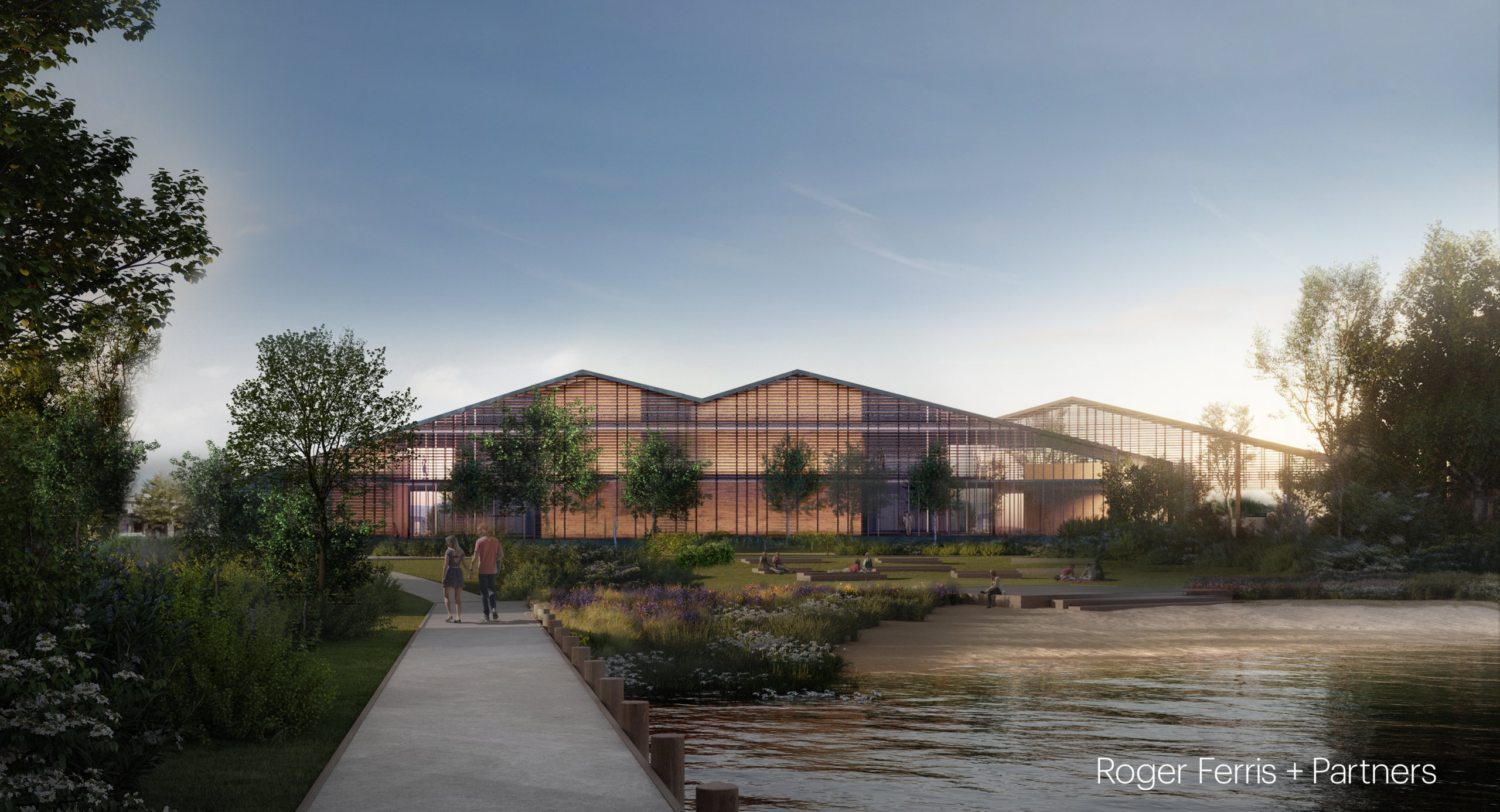
On the sunny but windy afternoon of April 23 in Sag Harbor, the John Steinbeck Waterfront Park was buzzing. Citizens filled the usually quiet land on the edge of the village, where the mayor, several trustees, the village attorney and others called a meeting to discuss a controversial development that could mean profound change for the community. But this wasn’t a meeting to discuss the threat of a big box store corporatizing the lovely village, or tall condos commercializing the historic waterfront. Instead, villagers were concerned that a beloved arts institution with two decades of built-up goodwill had become the subject of the largest controversy Sag Harbor had seen in years.
“I want to be very clear—this is not a pro-Bay Street or anti-Bay Street conversation,” said Mayor Kathleen Mulcahy in her opening remarks. “I personally am thrilled that Bay Street (Theater) has bought the property behind me and is going to stay here in the village, and I expect and hope that something beautiful will be built here.” Mulcahy was referencing the brick building directly behind her known as the Water Street Shops, which currently houses, among other things, a 7-Eleven, one of the only chain stores in Sag Harbor.
The building was purchased by newly formed nonprofit group Friends of Bay Street in October 2020 for close to $13.9 million. On April 6, Bay Street Theater held a pre-recorded video presentation revealing renderings of the planned new facility, which will house a 299-seat theater, dedicated space for the organization’s year-round educational programs, a center for new work development, a shop and scenery storage space and more.
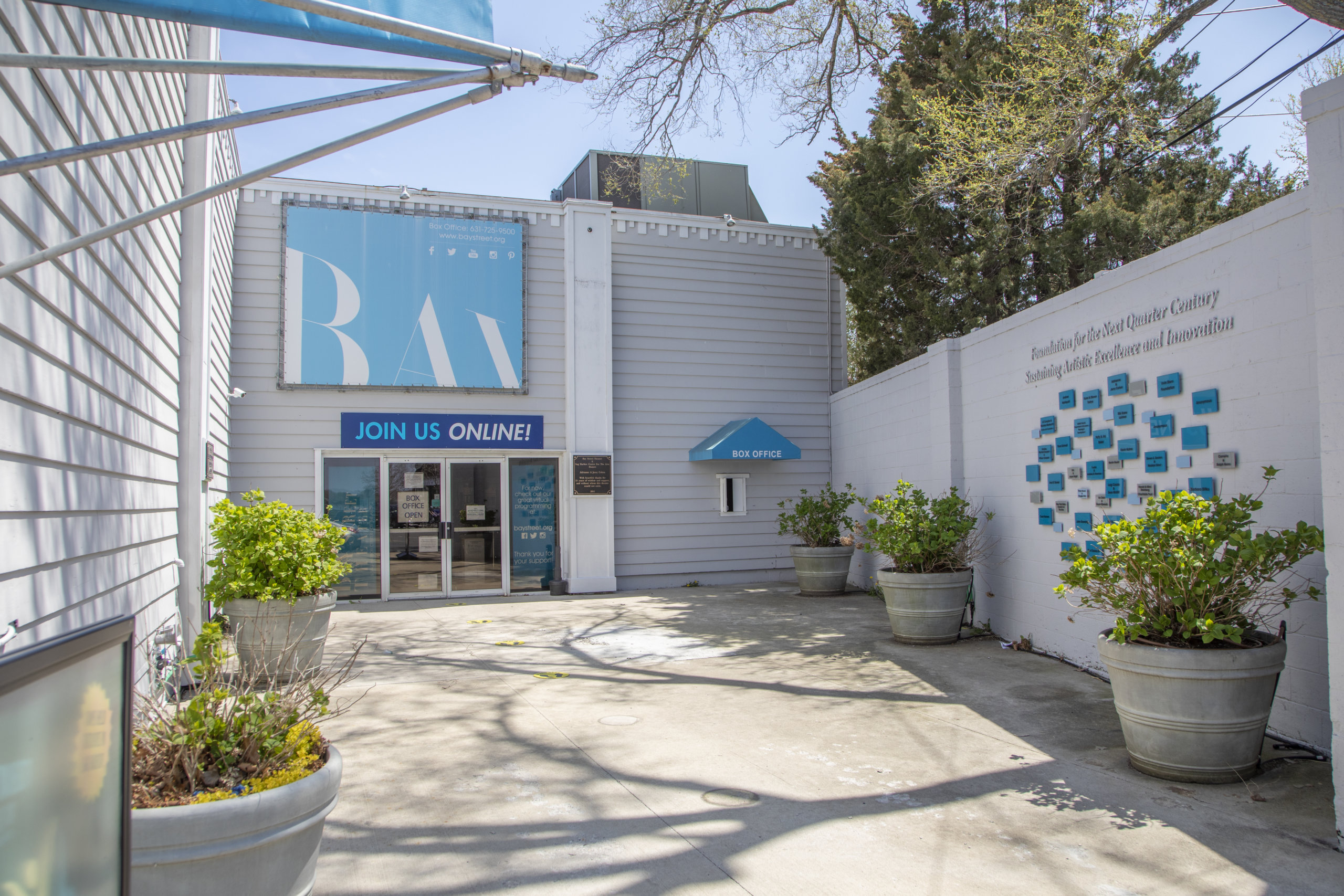
The renderings shown in the video raised more than a few red flags with the community, which led to the April 23 meeting. For one, the planned building by architectural firm Roger Ferris + Partners looks quite large. Many were concerned that the building would not abide by the 25-foot height limit on waterfront property in accordance with village zoning rules, blocking the waterfront views for the rest of Sag Harbor.
Mulcahy addressed the many rumors swirling about the developments, including that Friends of Sag Harbor planned to purchase and demolish more buildings. While some of the rumors could not be confirmed or denied, Mulcahy outlined the facts: In addition to the 7-Eleven building, the group has also purchased the Dodds & Eder building, plans to buy 2 Main Street and leave it open to become part of the Steinbeck Waterfront Park and is looking to lease the gas ball property from National Grid, which is currently used as a municipal parking lot.
The multiple high-profile property purchases, and growing rumor mill, has led to a sentiment that the new Bay Street Theater was but the first step in a wealthy developer’s plans to redevelop Sag Harbor with a vision not in step with the village’s history or personality.
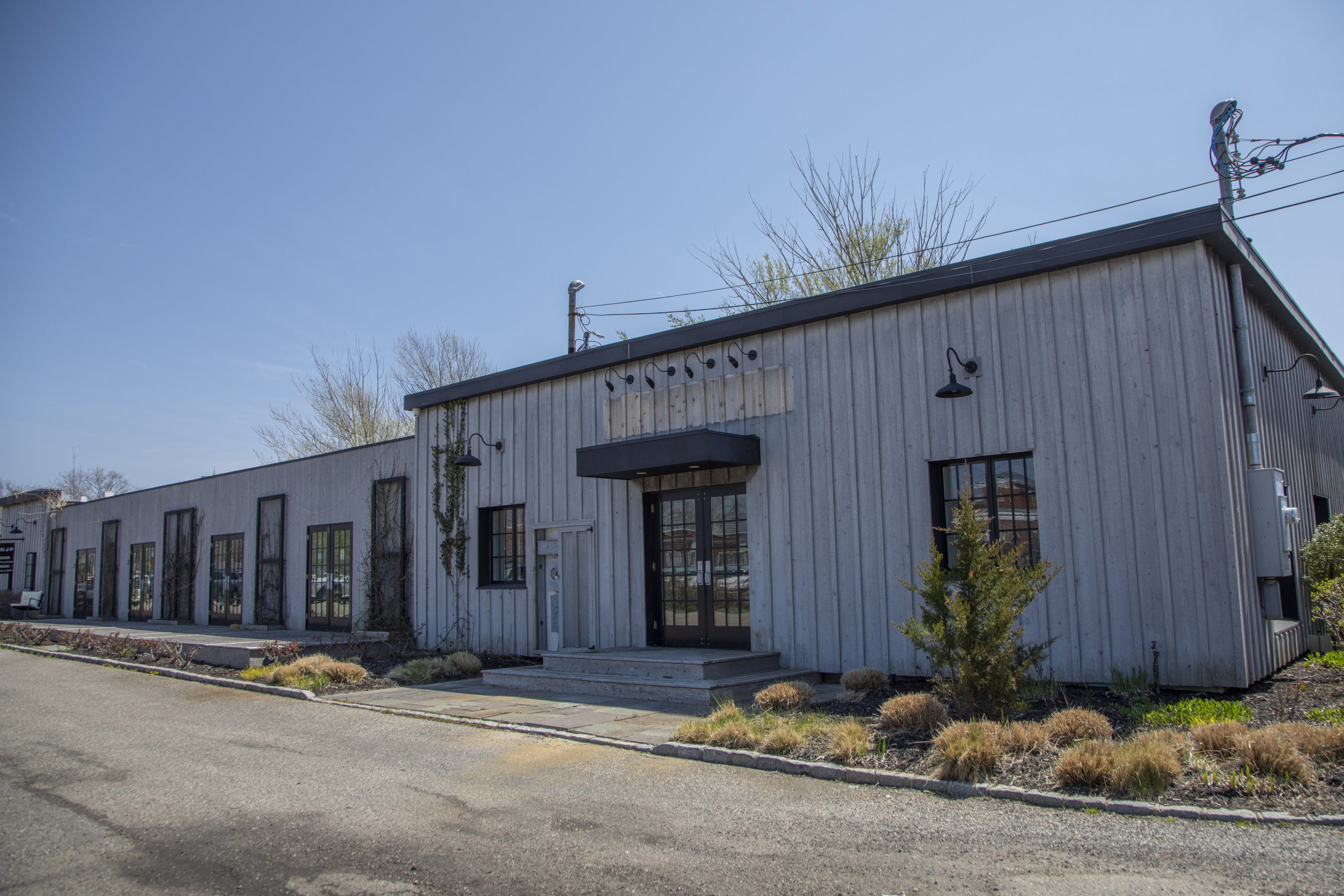
Friends of Bay Street was founded less than a year ago by Adam Potter as Friends of Bay Street and Sag Harbor Redevelopment, Inc., though it’s since distanced itself from the second half of its name. But Potter, an outsider to the close-knit village, has done little to calm the fears of the community, despite pledging to open a new convenience store as a consolation for the closing 7-Eleven.
The developments have even caused alarm within the arts community. April Gornik, founder of artist residency center The Church and chair of the Sag Harbor Cinema Board, sent a letter to the Sag Harbor Express with her concerns. Gornik wrote, “We have all been thrilled that our beloved Bay Street Theater, an important cultural anchor of the village, will be staying here in Sag Harbor, but the presentation made Tuesday, April 6, omitted critical points…Nor do we know who the backer for Adam Potter, Friends of Bay Street’s representative, is.” Gornik outlined these points in her letter, stressing that, “The purchases may be legal, but this obfuscation seems like duplicity, and makes our beloved Bay Street seem like a distraction from a larger land grab.”
Making matters even more complicated are the proposed changes to waterfront zoning laws, which have been in the works for years. There is currently a moratorium on waterfront development. During the meeting, Mulcahy surprised many when she stated that the Water Street Shops did not technically count as waterfront property.
After the meeting, Mulcahy elaborated on her issues with the Friends of Bay Street. “I’m a strong supporter of Bay Street,” she told Dan’s Papers, “We just have to make sure they don’t take us over. I think there are a lot of issues. Some people don’t think it should be here. What they showed [in the renderings] are too big. And there are all the other ancillary things,” she said. “We cannot let one thing take over our village.”
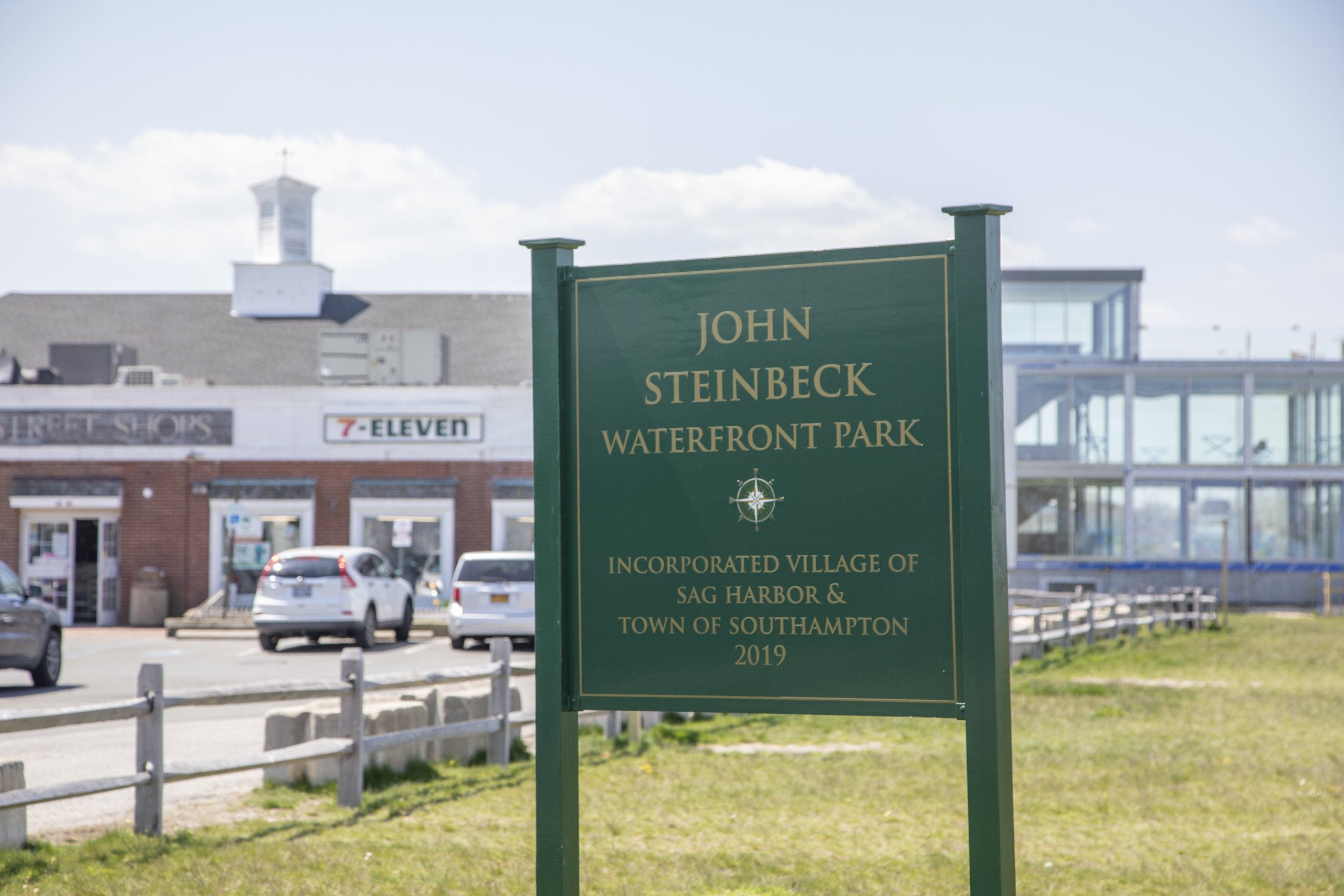
Looming over both the park and the controversy at the end of Steinbeck Park is an unfinished, 48-foot-tall property in development for the past several years.
Potter, along with Bay Street Theater Executive Director Tracy Mitchell, have opted not to comment on this story, and will hold a public forum on Saturday, May 1 at 4 p.m. at the theater to discuss their plans. With more questions than answers, Sag Harbor appears to be in the opening act of a drama that won’t reach its climax for some time to come.

